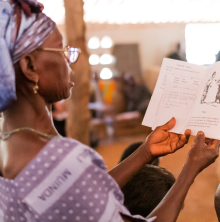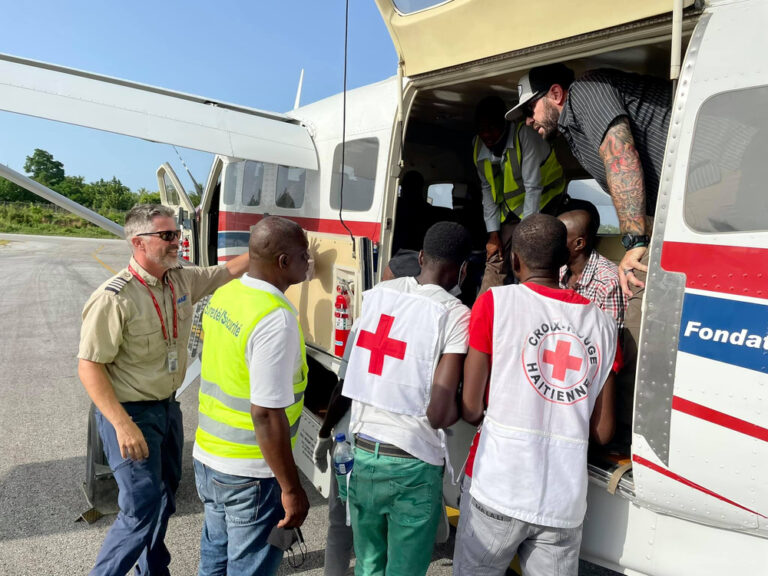 Rat-a-tat-a-TAT-TAT-TAT. The knock on our tall metal gate was insistent. Reluctantly, I pulled myself out of bed (resting for a little while in the afternoons is a must for me here in Port-au-Prince, where the humid heat constantly saps my energy) and headed downstairs, out the front door, and then down another set of stairs to the carport. I unbolted the gate and looked out into the street to see who was there. It was Wilson’s mother, holding her youngest child (one of six).
Rat-a-tat-a-TAT-TAT-TAT. The knock on our tall metal gate was insistent. Reluctantly, I pulled myself out of bed (resting for a little while in the afternoons is a must for me here in Port-au-Prince, where the humid heat constantly saps my energy) and headed downstairs, out the front door, and then down another set of stairs to the carport. I unbolted the gate and looked out into the street to see who was there. It was Wilson’s mother, holding her youngest child (one of six).
After the customary greetings, out flowed a torrent of Creole, about half of which I understood. As my Creole is intermediate at best, I kindly asked the woman to slow down and repeat herself. This time I understood: the little one was sick, and it was a request for money to go to the hospital.
My response was hesitant. Wasn’t I paying for Wilson’s education to free up some money for the family, so they could handle things like this themselves? I don’t want to encourage them to show up at the foreigner’s gate each time something goes wrong. But feeling the little girl’s forehead, I could tell that she was indeed feverish, and my mother’s heart went out to her.
This type of situation is very common among the missionary community. When is giving helpful? And when does it hurt, encouraging dependency? Occasionally, the answer is easy (the day a few months earlier where another mother I knew had shown up with her daughter, who had just been run over by a motorcycle and sported multiple wounds? Money passed hands quickly that day). But easy answers are rare. With each decision, I must weigh my knowledge of the people involved, their resources, the history of asking and giving, the severity of the situation, etc. And then, I must take a minute to pray: “God, what would you have me do in this situation?”
God, give us the wisdom to know your will in the little things, as well as the big!
###
Learn how your support helped our missionary families share the love of Jesus Christ with people in need in 2014: www.maf.org/2014impact




